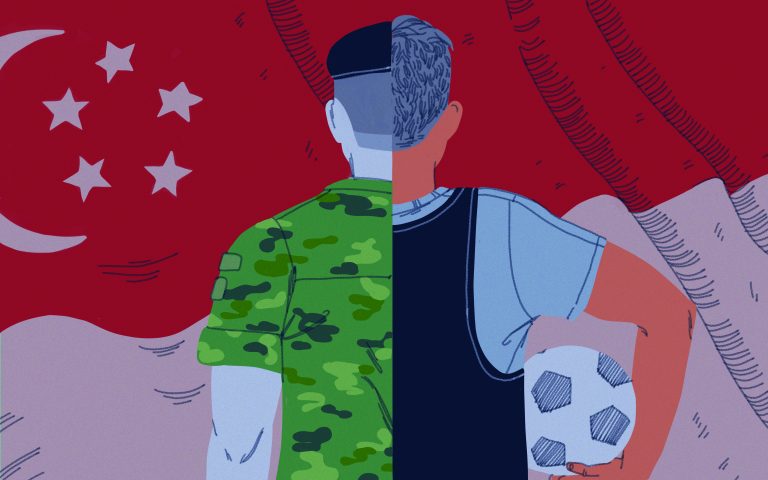


Ben Davis is signed to first-tier football club Fulham’s Under-18 team. Joseph Schooling beat Michael Phelps to clinch Singapore’s first Olympic gold medal.
Both are outstanding athletes who have achieved important milestones in Singapore’s sporting history. But where national service (NS) deferments are concerned, you get two completely different stories.
When news broke of the Ministry of Defence’s rejection of Ben Davis’ NS deferment, I quickly jumped on the bandwagon, ready to attack Mindef’s decision. Like many, I was upset that such a talent would be wasted because of national service.
But after giving the issue more thought, I realised that Mindef’s decision is perhaps fair after all.
NS deferment will only be granted if it “serves Singapore’s interest first and foremost, and never (an individual’s) own,” said Defence Minister Ng Eng Hen in Parliament on 6 Aug.
In his speech, Dr Ng said information on the football club’s website revealed that Davis will be playing for Fulham as an English national and not a Singaporean citizen. According to news reports, Davis holds UK and Thai passports on top of his Singaporean citizenship due to his parents’ lineage.
Davis’ father has also “consistently refused” to specify when Davis will return to serve NS and said he will only return for NS if his football career falls through.
Davis seems uncommitted to his duty as a Singapore citizen, but the Ministry is clear that all Singaporean males are to do their part to protect Singapore from external and internal threats.
Relaxing this criteria would only make Davis’ case a precedent for other individuals who place personal interests before the nation’s. That would not bode well for our national defence.
Similarly to Singapore, South Korea requires male citizens aged 18 to 35 to serve two years of military service.
Athletes who have won medals at the Olympics or a gold medal at the Asian Games are partially exempted and are only required to undergo four weeks of basic training before they are free to participate in international competitions.
That means professional South Korean football player Son Heung-min, 26, who plays for Tottenham Hotspur in the English Premier League, can continue pursuing his career if he bags the gold medal in this year’s Asian Games.
Entertainment celebrities are also allowed to defer their enlistment up to the age of 29, according to South Korea’s Military Manpower Association.
Granting partial exemptions and deferments to talented individuals are seen as ways to bring in revenue for and recognition to the country. In 2016, the K-Pop industry was valued at $6.4 billion, according to the Korea Creative Content Agency.
But before we complain about how inflexible Singapore is in comparison to South Korea, it is important to understand the differences.
South Korea is an Asian powerhouse at both the Summer and Winter Olympic Games, and the K-Pop industry is extremely lucrative. Also, with more than 51 million citizens, their pool for conscription is significantly larger than that of Singapore.
But in Singapore, athletes with an international presence like Schooling are extremely rare. To date, we only have two male Olympic medallists. With a smaller population size of about 5.5 million, and falling birth rates to boot, each Singaporean male is also much more vital to our national service.
It is easy to sympathise with a young talent chasing his dreams, but Mindef’s criteria for NS deferment, in my opinion, is ultimately fair and pivotal for national defence, something that will always be a priority in Singapore.